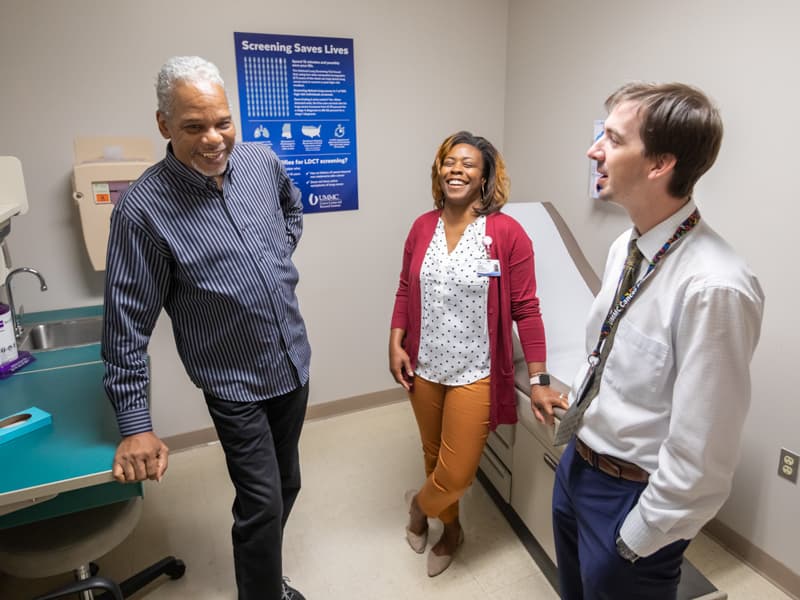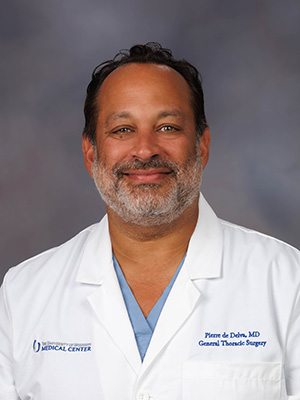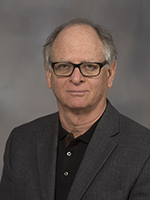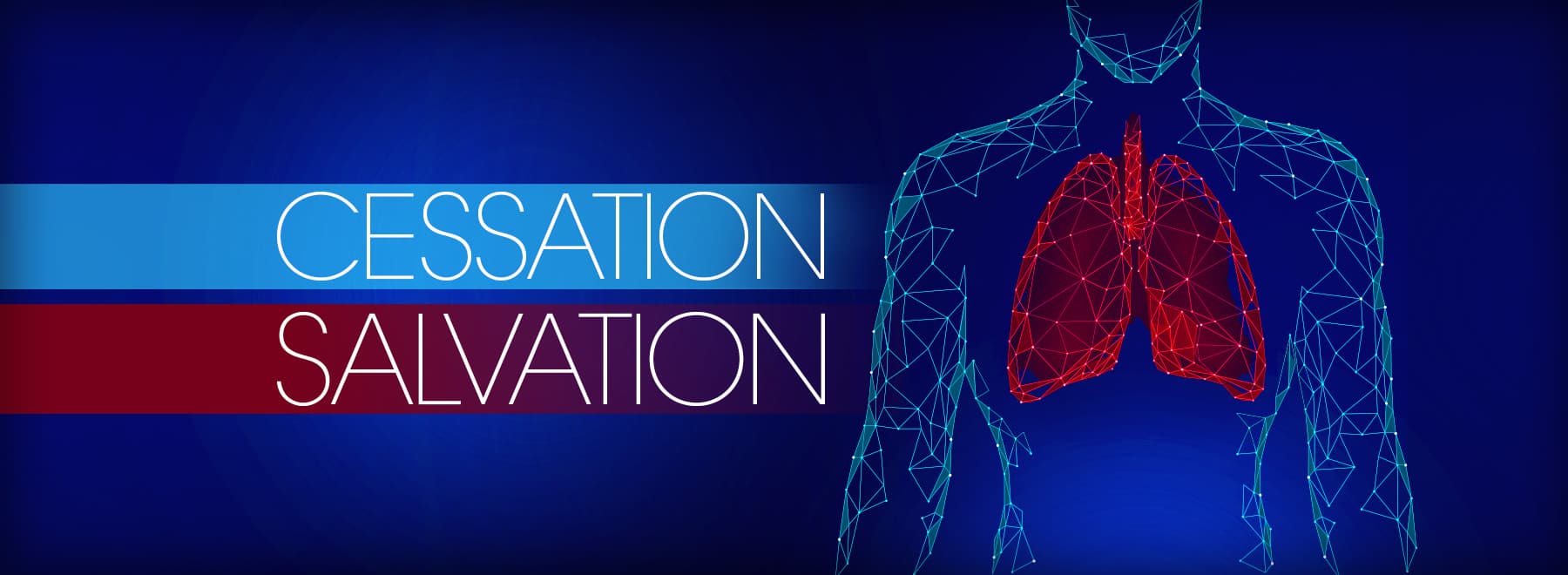Services unite to make finding, preventing lung cancer easier for patients

The University of Mississippi Medical Center Cancer Center and Research Institute’s Interdisciplinary Thoracic Oncology Program has launched an effort to identify patients who may qualify for lung cancer screening and to encourage patients, families and others to give up smoking.

“Our goal is to help them prevent lung cancer or to cure the patient of lung cancer,” said Dr. Pierre de Delva, UMMC associate professor of thoracic surgery and head of the Thoracic Oncology Program.
With his program members, including medical and radiation oncologists, radiologists, pathologists, pulmonologists, nurse practitioners, nurses, smoking cessation counselors and others, de Delva is seeking to identify patients who are at higher risk of cancer, encourage them to stop smoking, if applicable, and encourage them to be screened for lung cancer, if eligible.
That’s exactly what happened to Ronald Givens, 67, of Byram, who gave up a 50-year smoking habit two years ago. It was his second attempt to drop cigarettes. The first time he was smoke-free for a year.
Givens started smoking again after a Fourth of July party where “I started thinking like a teenager again.” That one night of smoking led to a month of puffing cigarettes. For a second time, he said he noticed chest pain, being winded when he climbed stairs and an unhealthy feeling.
Walking into the ACT Center for Tobacco Treatment, Education and Research opened a door to medication to help Givens quit smoking; counseling to help him overcome other Fourth of July teenage-thinking moments; and strong recommendations to get low dose computed tomography screening for lung cancer.
Givens’ counselor, Anastasia Smith-McEwen, referred him to Jonathan Hontzas, nurse practitioner and co-leader of the CCRI Lung Cancer Early Detection Program.
ACT was the first step, Givens said. But an LDCT?
“I got that close to running,” Givens said, pinching his middle and forefinger together.
Why the hesitation?
“If I go in and get bad news, how am I going to feel?” he said. But he got good news and learned from Hontzas that finding lung cancer before symptoms appear can mean the difference between a smaller surgery and a much larger one; the difference between the prospect of many years of life expectancy and fewer.
“It was painless,” Givens said. With no cancer findings, the retired Boeing flight mechanic said he’ll return annually for follow-up scans. And he has no plans to start smoking again.
“I can jump and kick my feet again and move a little faster and feel a lot better,” he said.
The Lung Cancer Early Detection Program is part of an effort to identify people who smoke and are at higher risk for cancer, heart and lung diseases; to help them quit smoking; and to screen those who are eligible.
“The goal isn’t to screen everyone but to screen the right patients,” said Hontzas, who co-directs the screening program with Dr. Michal Senitko, an interventional pulmonologist. “Our goal is to help people at highest risk and who need to be helped to prevent unnecessary follow-up and unnecessary bills.”
The program has several arms:
• ACT Center staff see many people who want to quit using tobacco. Long-time smokers who meet screening criteria are referred for an LDCT.
• The Early Detection Program gets referrals from internal medicine and family physicians across the university for LDCT. If the patients smoke, they’re asked to allow an ACT counselor to talk to them about quitting.
• Lung cancer doctors often find patients, family members and friends are still smoking. “We’ll ask if they’ll allow an ACT counselor to meet with them,” Hontzas said. “If so, the ACT counselor walks over and talks to the patient in the room. The patient may not choose to quit smoking, but at least we know we’ve presented them with the information,”
• Hontzas and Senitko provide education programs about the screening program to residents and members of UMMC’s internal and family medicine departments in the hope of screening more people who are eligible.
• People who go to the UMMC emergency room also may be referred to the team if any lung nodules are discovered. Some go on to get an LDCT based on their age and smoking history.
Thoracic program members also work with pulmonology, represented on the team, and with cardiology. Sometimes, an LDCT will reveal incidental finding of pulmonary or cardiac problems, enabling the patient to see the appropriate doctor to help with those conditions, Hontzas said.

Dr. Thomas Payne, ACT director, views smoking cessation as a process. Smoking is an addiction and people shouldn’t be shamed into quitting, he said. Each time a medical provider discusses smoking cessation, it plants a seed that may grow, if not immediately, then in another season of that person’s life, Payne said.
Senitko, an assistant professor of medicine and surgery in the Division of Pulmonary, offers another perspective, too. Program members now are able to use minimally invasive techniques to biopsy small nodules found in screening and often can perform all the diagnostic procedures at one time, meaning a patient doesn’t have to return two or three times for other procedures or anesthesia.
de Delva and others who treat lung cancer note each time a patient diagnosed with lung cancer quits smoking, the odds of treatment improves.
“We don’t always win, but if we don’t address it, they’re never going to quit,” de Delva said. “Cancer treatment is more effective if they stop smoking, but it’s also the whole patient. We want to lower their risk of stroke and heart attack.”
After all, he asked, what do those who continue to smoke gain by going through extensive treatment for lung cancer, only to die of stroke in a couple of years?
The team also is offering a clinical trial to help determine if lung cancer patients who quit smoking have fewer surgical complications.
de Delva cautioned that some people think if an LDCT scan detects no problems, it’s a green light to smoke.
That’s false. No one fully understands what makes cancer cells become active or when they will become active. So one negative scan isn’t a free-smoking ticket.
The team recommends annual screenings, because finding lung cancer early means the patient has more treatment options and better outcomes.
Who should be screened?
The CCRI follows national standards in determining who is eligible for screening. You may qualify for an LDCT if you:
• Are 55-77 years old,
• Have no history of cancer beyond nonmelanoma skin cancer,
• Are a current smoker or have quit in the last 15 years,
• Have no symptoms of lung cancer, such as coughing up blood,
• Have a 30 pack-year smoking history, or
• Have a 20 pack-year smoking history with additional risk factors.
Note: a pack-year equals the number of cigarette packs smoked per day times the number of years smoked. For example, smoking one pack of cigarettes a day for 30 years equals 30 pack-years; smoking two packs of cigarettes a day for 15 years also equals 30 pack-years.
The UMMC CCRI has been named a Screening Center of Excellence by the Lung Cancer Alliance.
• For help with an LDCT, call (601) 984-LUNG (5864).
• For help quitting smoking, call (601) 815-1180.
The above article appears in CONSULT, UMMC’s monthly e-newsletter sharing news about cutting-edge clinical and health science education advances and innovative biomedical research at the Medical Center and giving you tips and suggestions on how you and the people you love can live a healthier life. Click here and enter your email address to receive CONSULT free of charge. You may cancel at any time.



